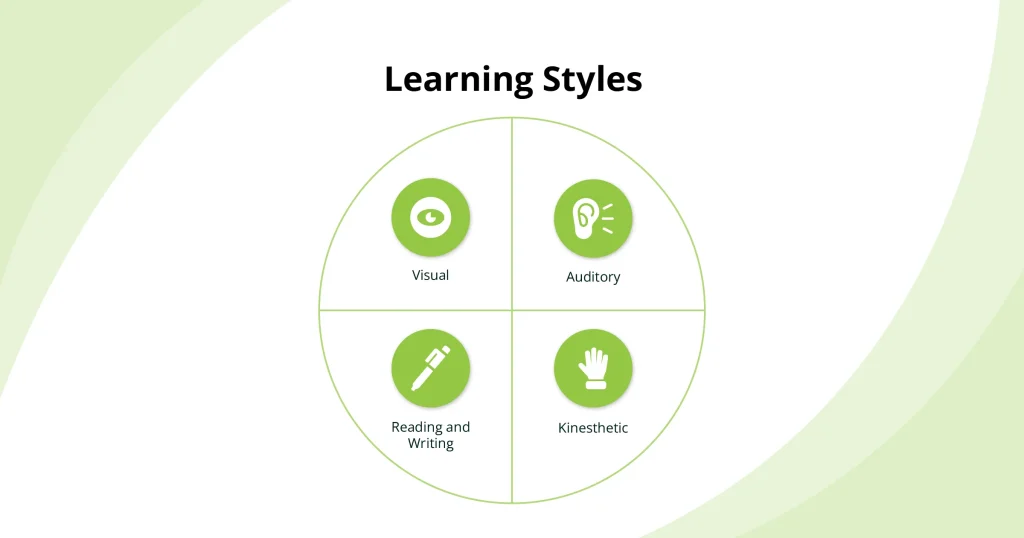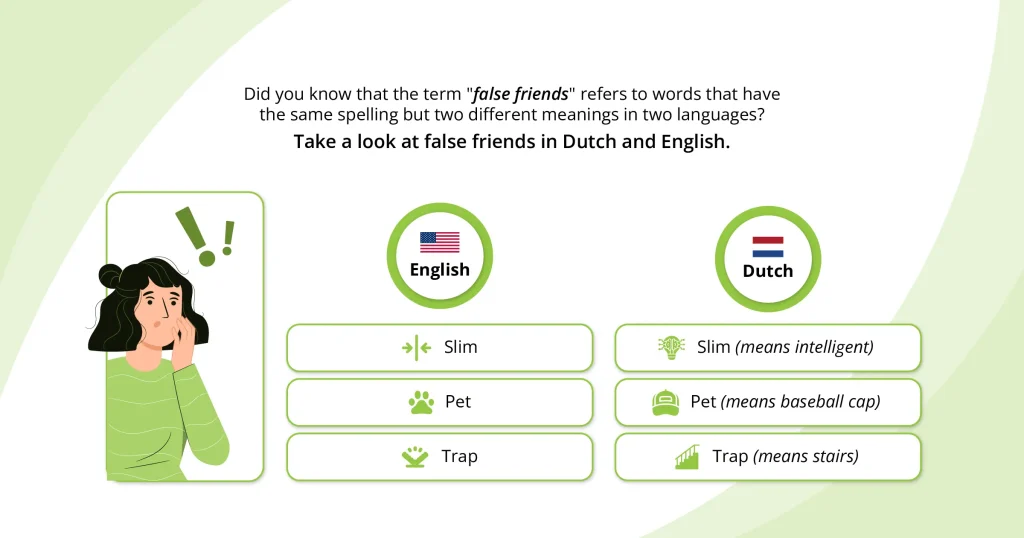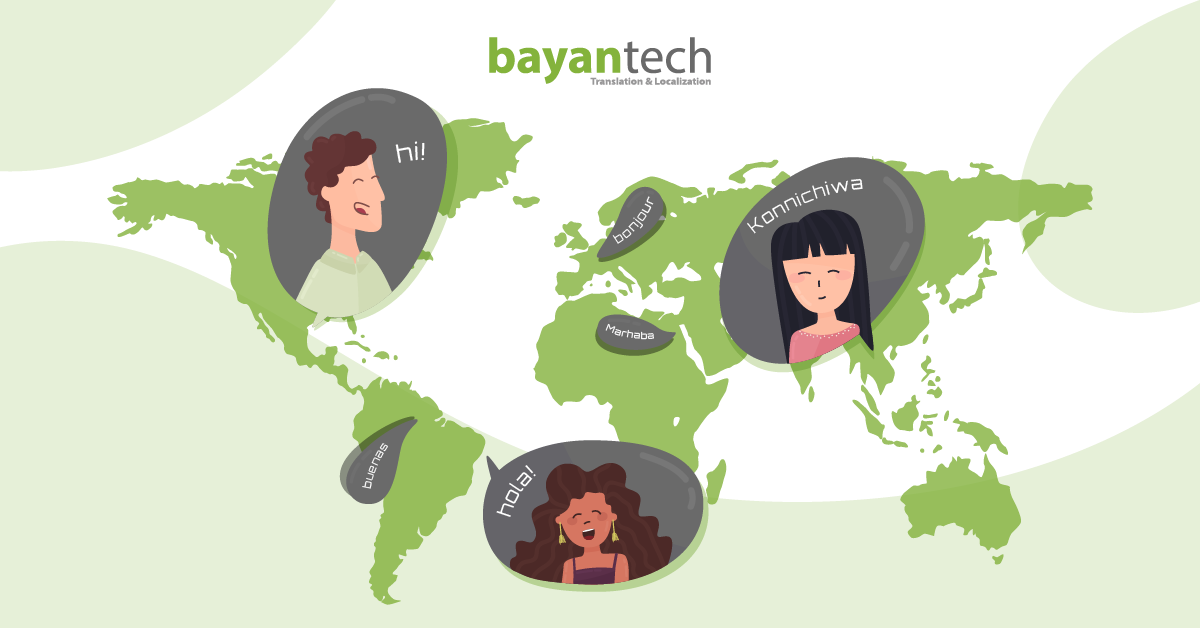To Everyone Who Loves Languages
It’s time to get back to that goal you set for yourself and learn a new language in your free time.
It’s easy to get discouraged, but we’ll walk you through some of the easiest languages to learn to give you some ideas on where to start.
What Makes a Language Easy to Learn?
- Shared Similarities in a Language Family
Languages belong to what linguists call a language family: a group of languages that all descend from a common origin language.
Spanish, Italian, and French belong to the Romance languages family, which all descend from Latin.
Dutch, German, and English belong to the West Germanic language family. Although English is heavily influenced by Romance languages as well.
It can be easier to learn languages within the same language family or that share similar vocabulary, grammar rules, and sentence structures.
- Exposure and Availability of Resources
There’s a reason why English is so widely spoken worldwide: it’s everywhere around us!
English movies, songs, news, online content, phone settings, and everything in between made it easier for people to learn it because they’re exposed to the language all the time.
That’s why teachers always recommend you listen to songs or watch movies in the language you are learning, so you can learn by exposure.
All this material also serves as learning resources, so it won’t be hard for learners to find material to study from.
- Matching Writing and Pronunciation
It helps in learning that a language has coordination between its written words and how they’re pronounced. This feature is what makes a language “phonetic.”
Britannica describes a phonetic language as a language whose words sound exactly like they’re written.
For example, German and Spanish are more phonetic than French.
- Personal Motivation
Then, comes the role of personal motivation. When a language learner is motivated enough and—more importantly—consistent with learning, any language can become easy to learn.
It’s also good to know what learning style works best for you to make the learning process easier and more fun.

The Easiest Languages to Learn for English Speakers
- Norwegian
The first language we have on our list is Norwegian. It’s easy for English speakers to learn because it’s a Germanic language and has a similar sentence structure to English.
Its simple grammar and pronunciation make it even easier to master.
Speaking Norwegian will help you enjoy your visit to Denmark, Norway, or Sweden.
Feeling doubtful that Norwegian is easy to learn? Take a look at its vocabulary compared to English.
| Norwegian | English |
| Papir | Paper |
| Park | Park |
| Boks | Box |
| Glass | Glass |
| Regn | Rain |
- Swedish
Second in place comes Swedish; similar to Norwegian, is a Scandinavian Germanic language. And like Norwegian, English speakers won’t find trouble with its grammar or vocabulary.
Swedish learners have noticed the huge word similarities between Swedish and English. These are called cognates: words that share the same etymological origin.
Swedish: Vi är här igen.
English: We are here again.
Swedish: Kom nu.
English: Come now.
- Spanish
The Spanish language is one of the easiest Romance languages to learn. It’s the second most spoken language in the US and over half a billion people speak it worldwide.
It’s a phonetic language so you won’t have a hard time pronouncing what you’re reading.
- Dutch
Dutch is a Germanic language family that’s spoken in the Netherlands and Belgium.
If German and English had a baby, it would be Dutch, and that’s because of the big similarities between their vocabulary.
A lot of Dutch words are spelled exactly like English; however, some have completely different meanings in Dutch, so beware!

- Portuguese
Portuguese is a Romance language spoken in Europe and Latin America. And even though European Portuguese and Brazilian Portuguese vary, they’re very accessible to English speakers.
Learning this language can open up a lot of business opportunities and can help you enter a wide market in both Europe and Latin America.
- Italian
Italian is another Romance language English speakers can easily learn. It is the most spoken Romance language after Spanish and Portuguese.
Perhaps the biggest appeal in learning Italian is to live your Eat, Pray, and Love dreams and try all the amazing food there.
- French
French is another Romance language most English speakers gravitate towards.
It’s not as easy to learn as the other languages as it has many grammar rules and exceptions and because it’s not a phonetic language, so most word spellings do not match their pronunciations.
However, it’s a language with abundant resources and around 321 million speakers all over the world, spoken in France, Canada, Belgium, Monaco, and many African countries.
Other Easy Languages to Learn
- Afrikaans
Afrikaans is one of the official languages in South Africa. It’s heavily influenced by Dutch and it has a great degree of mutual intelligibility with English.
One of the main advantages of learning this language is that it has no gendered nouns and has very simple verb conjugations, so it will save you the trouble of memorizing so many rules.
- Malay
Malay is considered one of the easiest Asian languages to learn, mainly because it has a lot of loanwords from English.
Its grammar rules are pretty simple and its words are easy to pronounce. Most effort will be put into learning its new vocabulary, which is the most fun part of learning a language.
- Swahili
“Hakuna Matata, what a wonderful phrase!
It means no worries for the rest of your days.”
And this phrase is Swahili, which gives you an idea of how fun it could be learning this language!
If you’re an English or Arabic speaker, this language will be very easy to learn. Take a look at some of the similarities it has with Arabic and English.
| Swahili | Meaning |
| Samahani | Excuse me |
| Lala salama | Goodnight |
| Rafiki | Friend |
| Bas stendi | Bus stop |
| Posta | Post office |
| Hoteli | Hotel |
- German
While the German language can have some complex sentence structures, its vocabulary is very easy to read and pronounce. It’s also very easy to guess the meaning of new words.
That’s because it’s a Germanic language and has a lot of vocabulary similar to English and because it depends on compound words; for example, the words “orangen” (orange) and “saft” (juice) make up the word “orangensaft” (orange juice).
If you’re someone who likes a challenge, maybe you need to take a look at the hardest languages to learn. This way, you can really impress your friends the next time you meet them and flaunt your talents.
Why Multilingualism Matters in the Business World
Learning a new language not only broadens your personal horizons but also opens up exciting professional opportunities. Here are some of the pros of multilingualism in the business world.
- Increased Market Reach
Multilingualism is your key to accessing more markets. It allows you to expand your customer base and reach your full potential as a business.
Imagine unlocking a big market like Asia; that will only be possible through incorporating Asian languages into your business.
- Improved Customer Relationships
The more you tailor the customer experience according to your audience’s preferences, the more trust and loyalty you build with your customers. So, make sure you speak their language to reach that goal.
- Competitive Advantage
In competitive markets, multilingualism gives your business an edge. It helps you stand out from the crowd. Plus, multilingualism shows that your business has the capacity to cater to international markets and not only local ones.
- Enhanced Brand Image
In a time when cultural awareness and sensitivity are a priority, multilingual communication will help boost your global brand image.
Now, most businesses focus on localized marketing campaigns to speak to their target audience, making sure they sell their product or service right.
- Good Employee Communication
Multilingual communication is also vital in multinational companies. It makes collaboration easier between teams and makes the workflow more efficient.
It also makes your company culture more inclusive and inviting for high-caliber employees.
Translate Any Language with bayantech
bayantech is your trusted partner for all your translation and localization needs. Whether it’s a complex project or a quick turnaround, we deliver exceptional quality every time.
With expertise across diverse industries and proficiency in over 120 languages, our skilled linguists ensure your message resonates with global audiences. Let us help your business unlock its full potential in every market.
Send us your project now!







